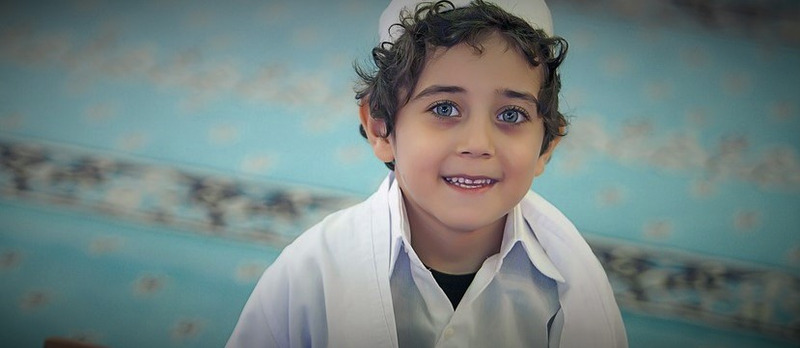Right now in Saudi Arabia, at least 4 people are awaiting execution by beheading or crucifixion for offences committed when they were children. Saudi Arabia must comply with adequate standards of juvenile justice.
A State Party to the Convention on the Rights of the Child
Although the Kingdom of Saudi Arabia is a State Party to the Convention on the Rights of the Child, the country’s reservation to this legal instrument represents a major obstacle to adequately addressing various aspects of children’s needs and interests.
Saudi Arabia’s reservation establishes Islamic law’s precedence over this international treaty.
Despite declarative recognition of the importance of the values underlying children’s rights and Saudi Arabia’s proclaimed commitment to their implementation, the actual legal framework and the authorities’ position regarding accused and sentenced minors can only be described as deprived of humanity and lacking any acknowledgement of the need for treatment that reflects their age and needs.
Medieval laws are defining who counts as a child
Saudi Arabia’s juvenile justice system is – for the most part – governed by Sharia law, which is followed in the absence of a written penal code.
This non-comprehensive legal framework gives broad discretion to law enforcement officers to determine whether a child is mature enough to be tried as an adult, as well as the offences for which juveniles can be arrested and detained.
Although children aged between 7 and 15 years who are in conflict with the law in Saudi Arabia should only be sanctioned with disciplinary measures, there are no legal barriers preventing judges from defining children under fifteen as mature enough to be charged and sentenced as adults.
de definir a los ninos menores de 15 anos, como suficientemnte maduros para ser condenados y sentenciados como adultos
Unfortunately, in a country with a legal system that permits this kind of exception, the State’s widespread persistence in charging and sentencing children over 15 as adults is unsurprising.
Since legislation is based on Sharia, the system differentiates between offences that require punishment by retaliation (eye for an eye principle), crimes punished by penalties strictly prescribed by Sharia law and offences for which the punishment is discretionary.
The death penalty and execution for offences committed by the children below the age of 18, unwillingness to implement and disrespect for the requirements of a fair trial, and non-compliance with the absolute prohibition of torture are undoubtedly the distinctive features of Saudi Arabia’s legal system.
Conflict with the law is met with physical pain
From among all its specific positions on the different provisions of the Convention on the Rights of the Child, the country’s least acceptable standpoints are those related to the respect of children’s right to life and the prohibition of torture and ill-treatment.
Article 37 of Convention obliges State Parties to take all available measures in order to ensure that no child will suffer from torture or other cruel, inhuman or degrading treatment or punishment, and bans capital punishment and life imprisonment without the possibility of release for crimes committed by people below the age of 18 years.
For instance, Saudi Arabia’s Juvenile Justice Act of 1975 still permits the imposition of corporal punishment for children in conflict with the law or religious prescriptions.
The provisions of this act authorize the punishment of people below the age of 18 by stoning, amputation and flogging. Such treatment can be based on arbitrary decisions and applied at the discretion of judges.
Torture is still permitted in Saudi Arabia
According to the latest reports of the Committee on the Rights of the Child, applying interrogation techniques that amount to torture also is still permitted in Saudi Arabia and they are frequently used by the authorities to coerce accused juveniles into signing confessions.
Perhaps the best indicators of the current position of children in conflict with the law are the facts that corporal punishment remains lawful in all situations (including family) in spite of the adoption of Child Protection Act in 2014, and that current Detention and Imprisonment Regulations allow and encourage flogging and other corporal punishment as disciplinary measures.
Especially problematic is the authorities’ attitude towards juveniles engaged in political demonstrations. There are numerous cases of children having been sentencing to death by the Specialized Criminal Court for alleged ‘terrorism’ or ‘disturbance of public order’.
Indicators of alarming trends
Currently, at least 4 people are awaiting execution by beheading or crucifixion for offences committed when they were under 18 years of age.
From 1992 to 2013 at least 8 minors were executed in Saudi Arabia. Unfortunately, there are indications that such activities are intensifying.
Given that there are at least 4 juveniles who could be executed at any moment and that it has been confirmed that of the 47 people killed in a mass execution on 2 January 2016 at least 4 were younger than 18 when they committed their alleged offences, it is without doubt that the Saudi Arabian authorities do not currently have any intention of complying with adequate standards of juvenile justice or working in best interests of children in conflict with the country’s law.
Written by Goran Batinica
Proofread by Holly-Anne Whyte
References:
Committee on the Rights of the Child (October 25, 2016). Concluding observations on the combined third and fourth periodic reports of Saudi Arabia. Retrieved from: http://tbinternet.ohchr.org/_layouts/treatybodyexternal/Download.aspx?symbolno=CRC/C/SAU/CO/3-4&Lang=En
Death Penalty Information Center (n.d). Execution of Juveniles in the U.S. and other countries. Retrieved from: https://deathpenaltyinfo.org/execution-juveniles-us-and-other-countries


